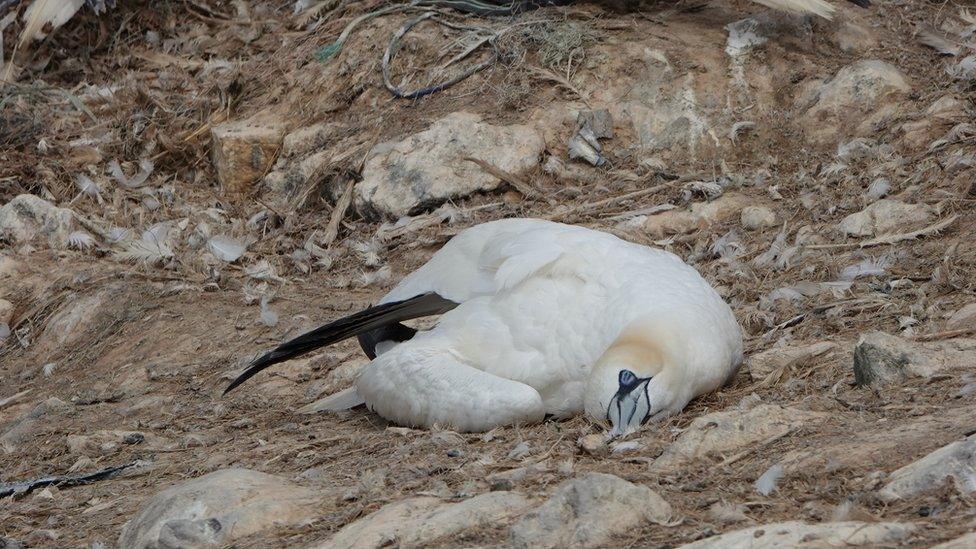Seagulls: Barmouth wonders where birds have gone
- Published
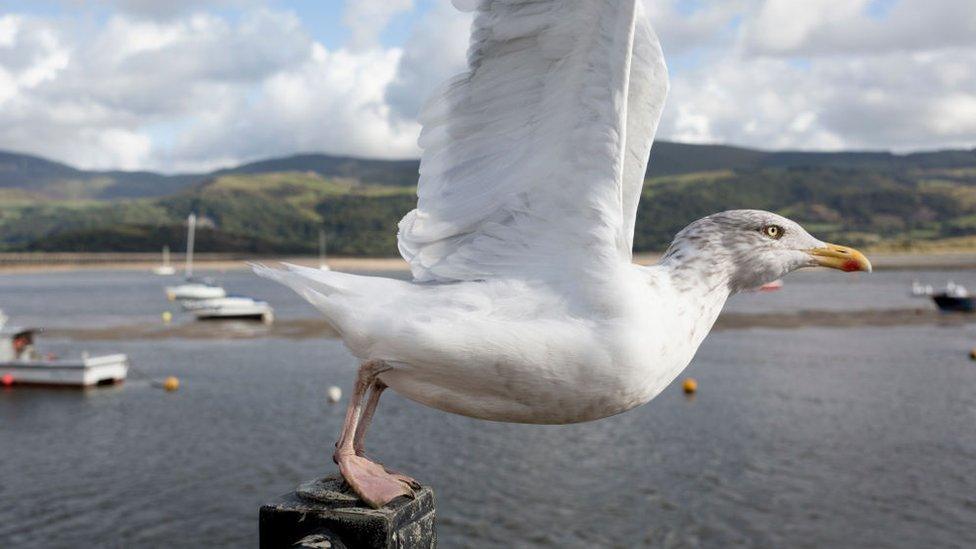
No chips used to be safe on the shores of Barmouth, but that's changed this year and residents are concerned
Residents of one seaside town have been left wondering what's happened to their usually bustling seagull population.
Herring gulls have always been a distinctive sight in Barmouth, Gwynedd, perching on rooftops and stealing food from visitors.
But over the past few weeks, some residents have said there seem to be hardly any at all.
Some people have wondered if an outbreak of bird flu is to blame.
Conservationists say more monitoring is needed of avian influenza cases in wild birds to know if there's a link.
Rob Triggs, who represents the town on Gwynedd council, said: "The herring gulls are my alarm clock in the summer - as soon as the sun comes up at 04:30, they get me up to take the dogs out.
"There's an old quarry face looking down on the town, and there'd normally be hundreds roosting there, but now there's nothing."

Barmouth: the old quarry face where gulls like to roost. It's now oddly silent, say locals.
"The town feels quite eerie - when we had a sunny day recently, there were loads of visitors here, they dropped chips, and there were no gulls to pick them up," Mr Triggs added.
Some people in Barmouth have said an outbreak of avian influenza nearby may be connected to the decline in herring gull numbers.
Fishermen in the area say they have seen dead birds on the shoreline recently.
But other people in town have suggested on social media that herring gulls may have simply gone elsewhere to look for food now that the summer tourist season is winding down.

A fresh portion of chips, usually a target for Barmouth's gulls, was left undisturbed
"We don't really know what's happening. We are still seeing some herring gulls on the beaches, but nothing like the numbers you'd expect." added Mr Triggs.
"It would be useful to get some feedback from the authorities to know what's going on."
Dr Rachel Taylor, senior ecologist for Wales with the British Trust for Ornithology, a conservation charity, said that if the gulls in Barmouth have contracted avian flu, it could have spread from anywhere.

Dr Rachel Taylor says there's no national system for monitoring avian flu in wild birds
"It's very hard to tell what is happening with herring gulls in Barmouth or elsewhere in Wales," said Dr Taylor.
"But there is an obvious candidate for any decline this year, because we've had unexpectedly extended and major outbreaks of avian flu viruses in seabirds generally.
"So it's entirely possible that we're losing herring gulls as a result of avian flu infections.
Dr Taylor said it was difficult to be sure if this was the case, because national avian flu monitoring focussed on outbreaks in domestic birds such as chickens, and there is no surveillance system with wild birds.
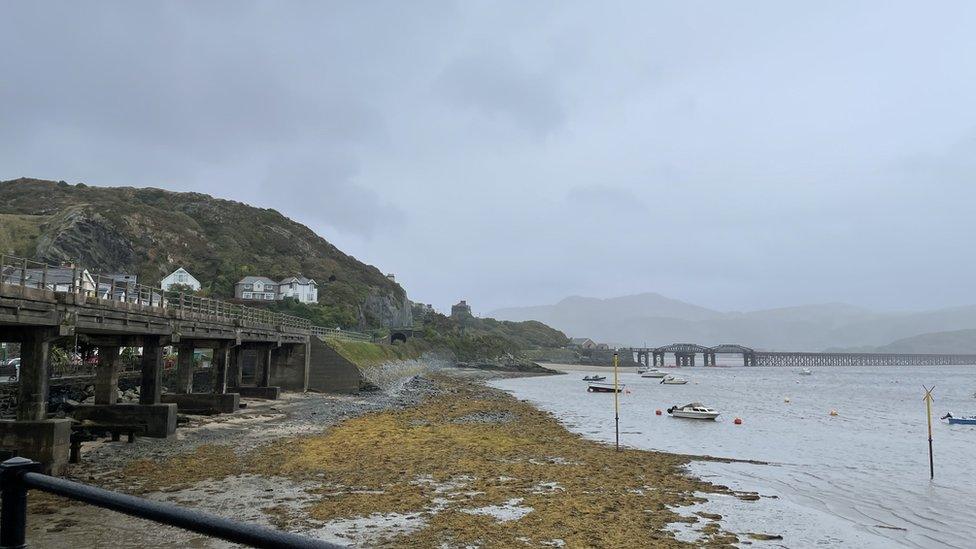
Barmouth harbour is missing its distinctive seagull contingent
"There certainly have been cases identified in herring gulls and other wild bird species, but there's not enough information, and we can't use it to understand an outbreak in wild birds," she added.
A Welsh government spokeswoman said: "We continue to work with Natural Resources Wales and Public Health Wales to monitor and respond to the threat of Avian Influenza to our wild birds.
"This includes having developed, with Defra (the UK government's Department for Environment, Food and Rural Affairs) a mitigation strategy for outbreaks in wild birds.
"We are also engaging with the other UK government administrations to monitor the domestic and international picture and share best practice, expertise and learning from the recent outbreaks in Scotland and England, recognising the migratory and dispersive behaviours of wild birds."

GREEN SPACE, DARK SKIES: The extraordinary mass participation lights project
THE WORLDS MOST EXPENSIVE SHEEPDOGS: In demand all over the world

- Published6 September 2022
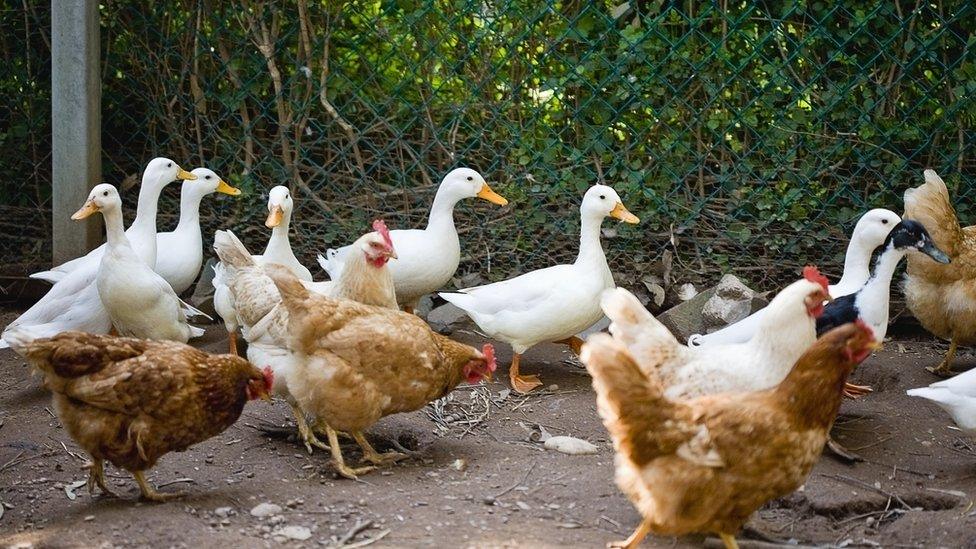
- Published3 October 2022
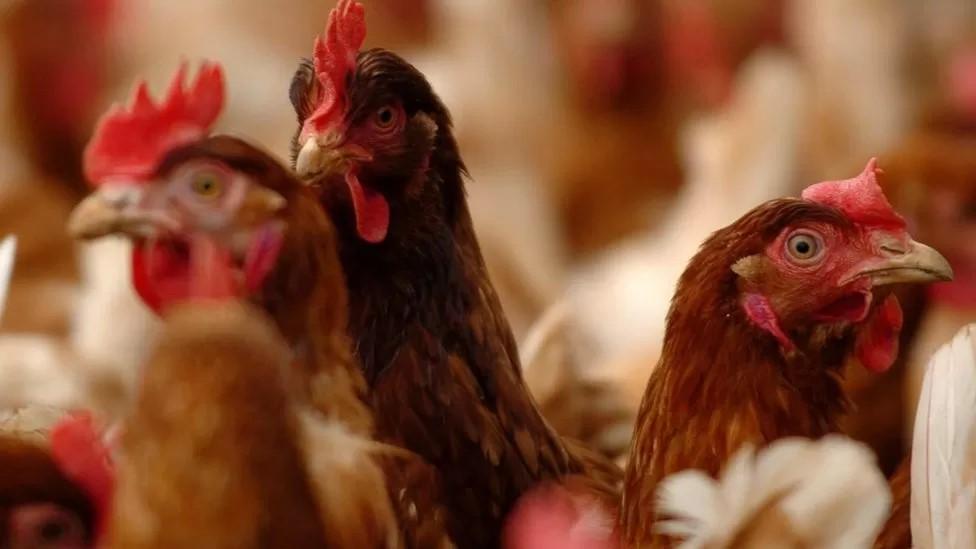
- Published4 August 2022
